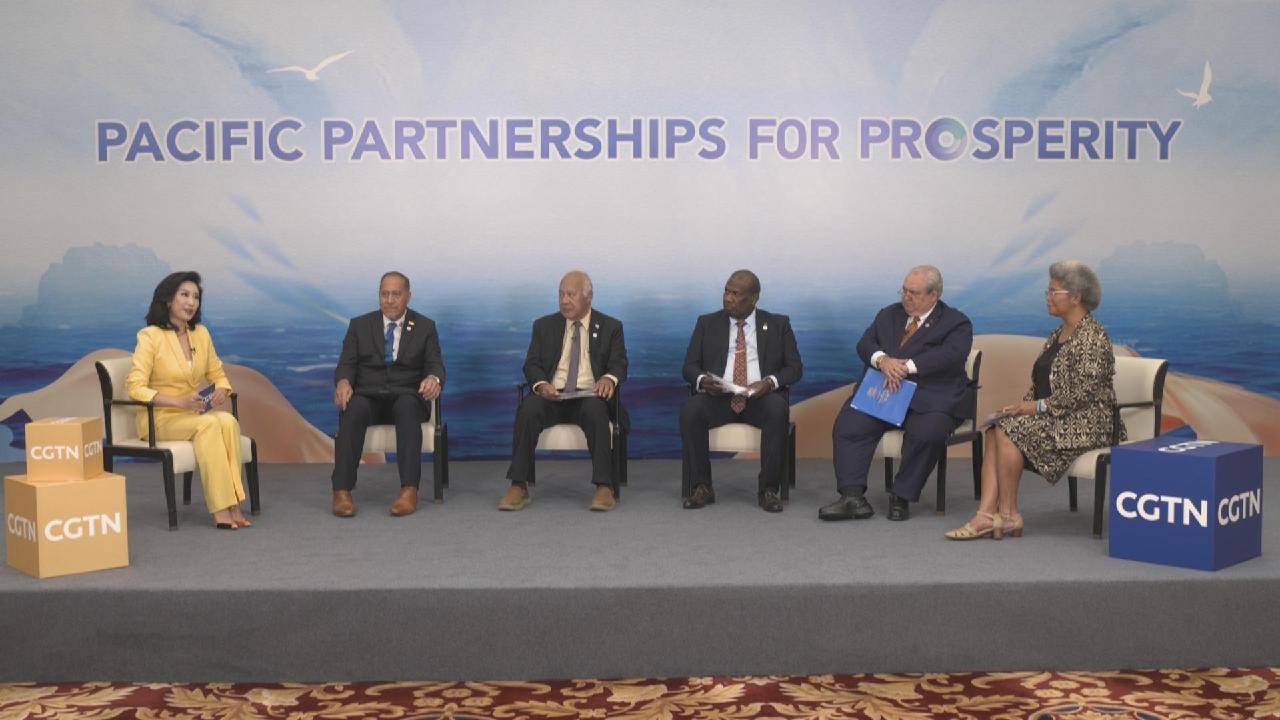Pacific Islands Foreign Ministers Engage in Strategic Dialogue with CGTN to Strengthen Regional Cooperation
Pacific Island foreign ministers engage in key dialogue with CGTN to discuss regional priorities and collaboration.

The Third China-Pacific Island Countries Foreign Ministers' Meeting concluded in Xiamen, Fujian Province, marking an important milestone in strengthening ties between China and its Pacific partners. Held from May 28 to 29, the gathering featured a pivotal roundtable dialogue themed "China-PICs Dialogue: Pacific Partnerships for Prosperity.” The event brought together high-level diplomats from five Pacific Island nations—Niue, the Federated States of Micronesia, Vanuatu, Papua New Guinea, and Fiji—to review achievements and explore new avenues for collaboration.
Niue’s Prime Minister and Foreign Minister, Dalton Tagelagi, reflected on half a century of diplomatic relations with China, underscoring the relationship’s foundation in mutual understanding and respect. Tagelagi highlighted Niue’s firm support for the one-China principle, emphasizing that shared values have played a crucial role in fostering trust and cooperation over the years.
Lorin Robert, Foreign Secretary of the Federated States of Micronesia, characterized the comprehensive strategic partnership as “mature” and expressed an eagerness to deepen cooperation across five key areas: respect for sovereignty, sustainable development, climate action, people-to-people exchanges, trade, and stronger diplomatic alignment through ongoing dialogue. This multifaceted approach, he noted, lays the groundwork for a resilient and mutually beneficial regional partnership.
Vanuatu’s Foreign Minister Marc Ati voiced his nation’s strong support for China’s vision of a “community with a shared future,” specifically noting the desire to expand bilateral cooperation in infrastructure, health, agriculture, climate change mitigation, and trade. Ati expressed confidence that joint initiatives under these sectors would translate into tangible improvements in living standards and economic growth for both sides.
Papua New Guinea’s Foreign Minister, Justin Tkatchenko, described China as a “positive force” for his country’s ongoing development. He reaffirmed Papua New Guinea’s active participation in the Belt and Road Initiative and confirmed aspirations for enhanced collaboration moving forward. Tkatchenko also drew attention to impactful projects such as Juncao cultivation—an innovative agricultural technology introduced by China—and the continuing success of the "China-Papua New Guinea Friendship School," which trains over 3,000 students annually, fostering educational and cultural links.
Fiji's Assistant Foreign Minister, Lenora Qereqeretabua, underscored the depth of mutual understanding between the two countries, stating that China’s awareness of Fiji’s national identity, culture, and traditions has been reciprocated with warmth and openness. She suggested that this cultural affinity is essential for building long-term partnerships and trust.
Throughout the discussions, leaders also focused on poverty alleviation, educational exchange, and climate action. These topics, participants agreed, are critical for small island nations facing unique development challenges and environmental vulnerabilities. Tkatchenko cited the agricultural success story of Juncao cultivation, attributing new market opportunities and improved food security to cooperation with China. He further reflected on the historical bond between the countries since World War II, highlighting how those ties have deepened through recent education and youth training programs.
By the conclusion of the roundtable, all parties voiced optimism and a strong commitment to advancing cooperation and friendship with China. The sense of unity and shared purpose carried through the event, signaling a promising future for China-Pacific Island country relations.




